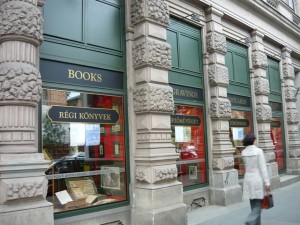Lessons from One Righteous Man…Video

One Righteous Man: Samuel Battle
and the Shattering of the Color Line in New York,
by Arthur Browne is the story of the life of the first
African-American police officer.
Journalist Arthur Browne recently appeared
on C-Span to discuss the life of the policeman who
had a challenging and historic career.
After retirement, Mr. Battle hired the famous poet
Langston Hughes received a foreword from his friend,
First Lady Eleanor Roosevelt made several attempts
to interest publishers in his memoir.
No interest.
After hearing the amazing story of Samuel Battle, one wonders
why self-publishing was not explored. According to Arthur Browne, there’s no evidence to
suggest that the strategy was considered.
In the 1950s, Battle in Harlem was the title of the manuscript
completed. One suspects that the earlier work, based on that title,
and given the cultural climate would not have appealed to mainstream
publishers for several reasons.
Repeated rejections from publishers have led many to take matters into
their own hands and produce their work.
Entrepreneurial Takeaways
Self-publishing isn’t for everyone, but many iconic figures turned
to self-publishing. W.E. B. Du Bois is one example notes book
marketing expert John Kremer.
As a retired police lieutenant, Samuel Battle had many elements of
the skills necessary to market his work entrepreneurially.
But he likely did not have the aptitude of a marketer.
According to aptitude researchers, effective law enforcement professionals may not have
the creative skills of a marketing expert.
Marketing is not just selling but knowing how to produce
the right product, in this case, a book with the right content
and finding the right people to help sell the concept.
Compare the title of the 1950s manuscript with that of
the present-day biography One Righteous Man…
Which title do you think, based solely on the names
would have a broader appeal? Why?
Regardless of how renowned the reputation, hiring a poet, novelist,
playwright to write a memoir was not the best way to complete
Samuel Battle’s project. There are several instances where
famous authors attempt to write outside their favored genre
with less-than-stellar results.(Example:
Shields, To Kill A Mockingbird, recounts the difficulty
faced by novelistHarper Lee author in completing a nonfiction project.)
Langston Hughes was not only the wrong person for the project,
but a market savvy person would likely have avoided using the poet
because his political views might have caused traditional publishers
to decline the book proposal.
Back then, depending on the book’s editorial focus,
publications such as The Negro Travelers’ Green Book
and Ebony magazine might have been a means
of marketing the memoir independently
References
Newsday.com
Book Excerpt
http://tinyurl.com/nhd7rzw
C-Span
To Kill A Mockingbird
http://www.c-span.org/video/?326872-1/words-charles-shields
Blackpast.org
http://www.blackpast.org/aah/ebony-magazine
Self-publishing hall of fame
Bookmarket.com
http://www.bookmarket.com/selfpublish.html
http://www.bookmarket.com/booksforsale.htm
The Green Book
University Digital Library
http://library.sc.edu/digital/collections/greenbook.html
Views: 39